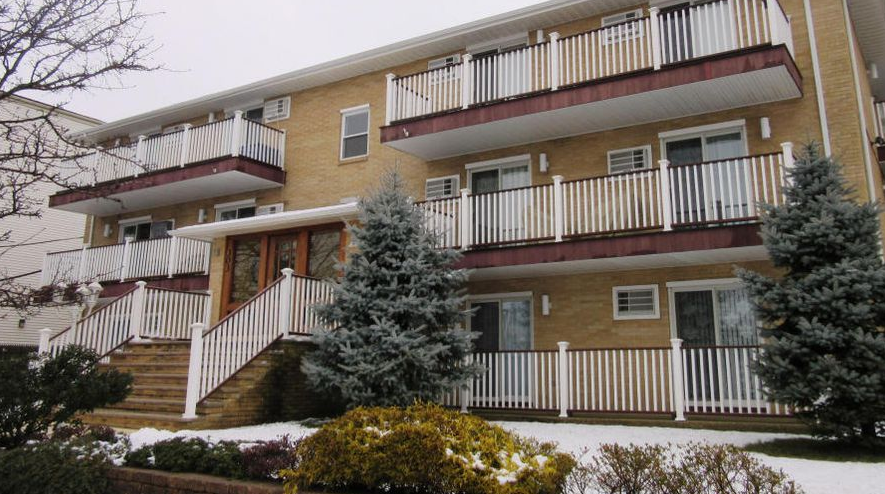Lechler v. 303 Sunset Ave. Condo. Ass’n, Inc.: Why Amending Your By-Laws to Include Immunity for the Association is Important
In Lechler v. 303 Sunset Ave. Condo. Ass’n, Inc., Plaintiffs appealed from the dismissal of their case at the trial level. The Appellate Division determined that Plaintiff’s status as a licensee or invitee was not controlling. Instead, the Condominium Act established the Condo Association’s duty to the Plaintiff. Specifically, the Court held that the Association had a duty to unit owners to replace a missing center handrail on the Condominium’s 158-inch-wide exterior staircase—even though its absence was obvious. The matter was remanded for trial by a jury to determine if the Association and the property manager had fulfilled their duty of care to Plaintiff.
Plaintiffs Thomas and Ulrike Lechler owned a unit in 303 Sunset Avenue Condominium.[1] They purchased the unit in 2008. In 2014, Mr. Lechler stumbled down the center of the Condominium’s 158-inch-wide exterior staircase. He tried to regain his balance but struck the last step with his heel and fell to the ground.

303 Sunset Avenue Condominium
At trial, Plaintiff presented in part the following evidence:
- The stairs were 158-inches-wide and lacked a center handrail.
- Bolt holes in the center of the stairs indicated that there once was a center handrail.
- Plaintiff had used the stairs on “many occasions prior” to the date of the fall.
- Plaintiff usually walked down the middle of the stairs and had never had a problem before the fall.
- The Association’s By-Laws give the Association the power to care for and maintain the common elements.
- The Association’s Board President knew people walked down the center of the stairs without using the handrails.
- The Board President had never received a complaint about the stairs or the lack of a center handrail.
- Plaintiff’s Expert testified that in 1975 (the year the Condominium was constructed) the BOCA Code required a central handrail for stairways wider than 58 inches.
- New Jersey’s subcode prohibited the removal of any previously installed item that was installed to comply with the code.
- The expert testified that lack of the center handrail was a substantial contributing factor to the fall.
After Plaintiffs presented their case, the court granted Defendants motion for a directed verdict—essentially saying that no jury could find in favor of the Plaintiffs. The trial court held that Plaintiff was a licensee aware of the missing handrail and that the record lacked proof Defendants knew they needed to replace the handrail.[2] The court dismissed the matter, and Plaintiffs appealed.
On Appeal, the court held that to establish a case of negligence on its face; the evidence must show that the defendant owed plaintiff a duty of care; that the defendant breached that duty; and that the breach of the duty caused plaintiff’s damages.[3] Additionally, the court acknowledged that the traditional approach to determining the duty of a landowner is dependent on whether the plaintiff is an invitee, licensee, or trespasser.[4] However, these categorizations are “shorthand” in cases where the injured party fits neatly into one of the categories.[5] Statutes are evidence of a defendant’s duty of care in addition to plaintiff’s status as an invitee, licensee, or trespasser.[6] Statutes may establish a duty, particularly if the plaintiff falls within the class of persons a statute was enacted to benefit.[7]
Accordingly, the Appellate Division held that under the Condominium Act, the Association had the responsibility for the maintenance, repair, and replacement of the common elements.[8] This statute was specifically enacted to benefit the unit owners—Plaintiff. Moreover, the New Jersey Supreme Court has stated that a condominium association has a statutory obligation to manage the common elements.[9] Ultimately, the court held that the statutes established the Association’s duty to maintain the stairs and that duty included replacing the center handrail–even though the missing handrail was open and obvious. The court stated that the defendants were in a better position to know that the missing handrail was a safety issue.
How could the Association have avoided this litigation? Title 2A of the New Jersey statutes permits a condominium association to immunize itself against negligence actions by unit owners.
Where the bylaws of a qualified common interest community specifically so provide, the association shall not be liable in any civil action brought by or on behalf of a unit owner to respond in damages as a result of bodily injury to the unit owner occurring on the premises of the qualified common interest community.[10]
In this matter, Asbury Park’s 303 Sunset Avenue Condominium Association’s By-Laws did not contain such an immunity provision.
Are your Association’s By-Laws up to date? Contact us to review your Master Deed and By-Laws.
[1] Lechler v. 303 Sunset Ave. Condo. Ass’n, Inc., 2017 WL 6757233 (N.J. Super. Ct. App. Div. Dec. 29, 2017) at 2-3
[2] Id. at 8.
[3] Id at 10, citing D’Alessandro v. Hartzel, 422 N.J. Super. 575, 579 (App. Div. 2011).
[4] Id., citing Hopkins v. Fox & Lazo Realtors, 132 N.J. 426, 433 (1993).
[5] Id. at 11.
[6] Id. at 12, citing Eaton v. Eaton, 119 N.J. 628, 642 (1990).
[7] Id.
[8] Id. at 14, citing N.J.S.A. 46:8B-14(a)
[9] Id. at 15, citing Qian v. Toll Bros. 223 N.J. 124, 127 (2015)
[10] N.J.S.A. 2A:62A-13(a)
